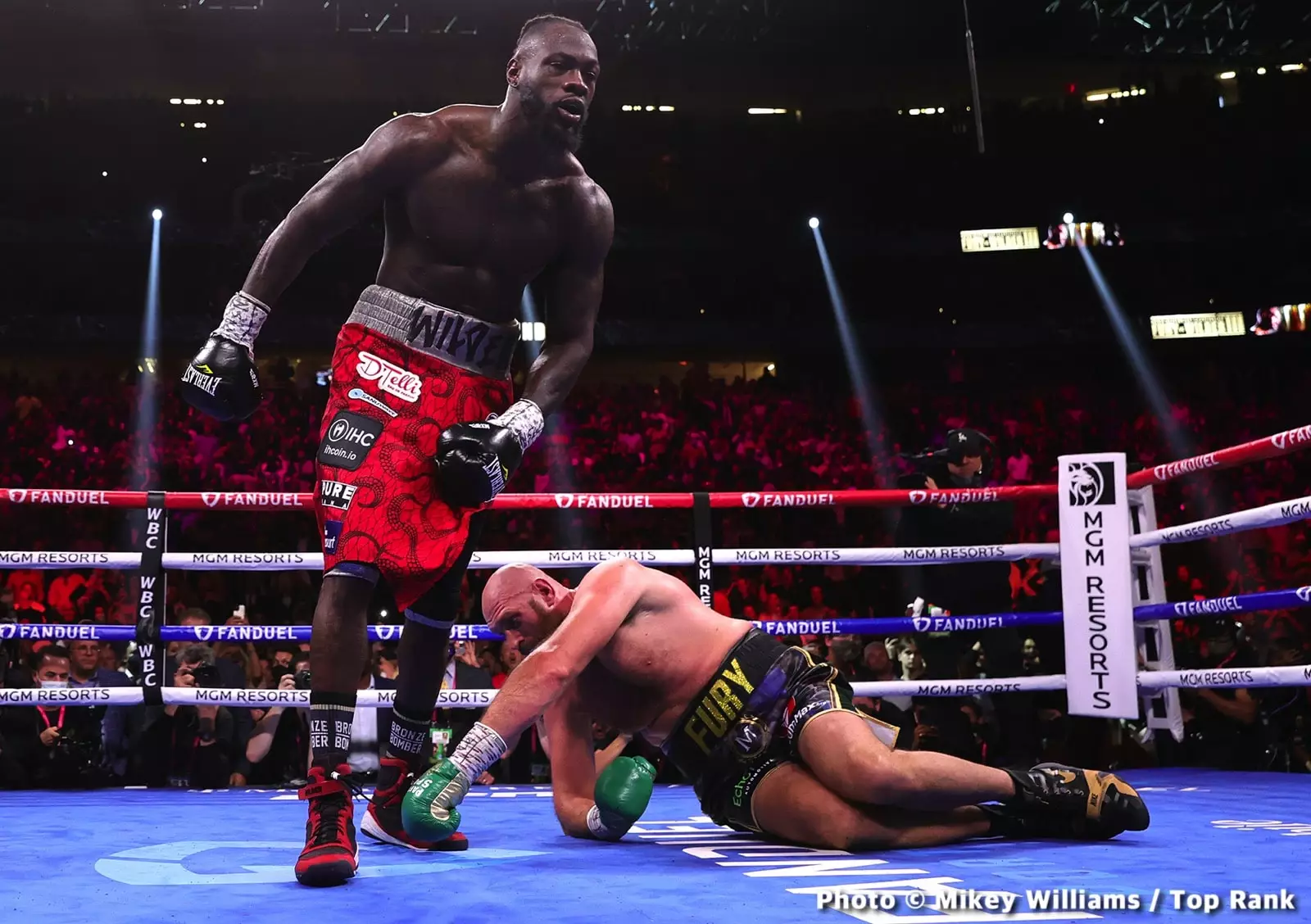As heavyweight boxing continues to captivate fans around the globe, the spotlight shines brightly on Tyson Fury as he prepares for his eagerly anticipated rematch with Oleksandr Usyk. This fight holds significant weight not only for the fighters involved but also for the future of the heavyweight division itself. Ahead of this bout, Fury was posed with a thought-provoking question: who does he consider his toughest opponent throughout his career? Surprisingly, he pointed to Deontay Wilder, a choice that invites deeper discussion about both fighters’ legacies.
It’s intriguing to dissect Fury’s reaffirmation of Wilder as his most formidable opponent rather than Usyk, who is undoubtedly the only boxer to have defeated him in the professional arena. While it’s easy to understand the rationale behind Fury’s selection—Wilder’s explosive power and knockout capabilities were present in every encounter—they also reveal a paradox about greatness in boxing. Wilder represents the sheer force of nature, a puncher whose physical gifts carved a distinct niche in the heavyweight realm. In contrast, Usyk offers an entirely different challenge, one rooted in technical skill, agility, and ring intelligence.
Fury’s acknowledgment of Wilder underscores a broader narrative within boxing: the instinctive allure of a knockout artist. It’s not merely about who can take the best punch; it’s also about how they can navigate the complexities of a boxing match. Fury’s point about the terror induced by Wilder’s highlight-reel finishes speaks volumes about mentality in the ring, illustrating how fear factors into a fighter’s approach to their opponent.
Despite the mutual respect evident in their encounters, one must consider how Fury’s preference for Wilder might reflect a reluctance to fully accept the dimension Usyk adds to the lineage of heavyweight champions. Fury has built much of his narrative around the dramatic victories he achieved against Wilder. However, as he aims for monumental acclaim, defeating Usyk would significantly bolster his legacy. Some purists argue that a triumph over Usyk, characterized by tactical mastery and careful execution, would signify a more profound achievement than any knockout win.
Many boxing aficionados have argued that Wilder, while a prolific knockout artist, lacked the holistic approach that opponents like Usyk employ. This is where the discussion deepens: how does one measure greatness beyond the physical attributes? Fury is in a unique position, as he must grapple with the reality that while he may have beaten Wilder multiple times, he has yet to decisively conquer the more technically adept Usyk. His past experience may not prepare him for the intricate strategy and indomitable spirit that Usyk brings into the ring.
As Fury gears up for their rematch on December 21st, one cannot help but wonder about his perspective on Usyk’s previous victory. Fury’s somewhat dismissive remarks about Usyk may suggest a form of denial—a cognitive dissonance in acknowledging not just Usyk’s capabilities but also his previous defeat. The fight in May, while close on paper, featured pivotal moments, with many predicting that Usyk won decisively on the unofficial scorecards.
Fury’s insight into the mental aspect of facing an adversary as skilled as Usyk is critical. Unlike Wilder, who required only a single, well-timed punch to alter the course of a bout, Usyk demands a multifaceted approach. He can hamper Fury’s strategy with consistent footwork and split-second decisions that can dismantle even the most seasoned fighters.
In the aftermath of their imminent rematch, regardless of the outcome, Fury must either reconcile his notions about Usyk’s abilities or continue to navigate the stigma of his previous defeat. A decisive win over Usyk could finally secure Fury’s position among the all-time greats. On the other hand, should he falter again, it could reinforce the ongoing debate surrounding his true standing within heavyweight boxing.
As we watch this unfolding drama, one thing remains certain: the ring is a crucible where legacies are forged and reshaped. Whether Fury emerges triumphant or humbled, the lessons learned will resonate beyond the ropes, providing invaluable insights into the combat sport’s most compelling narratives.

